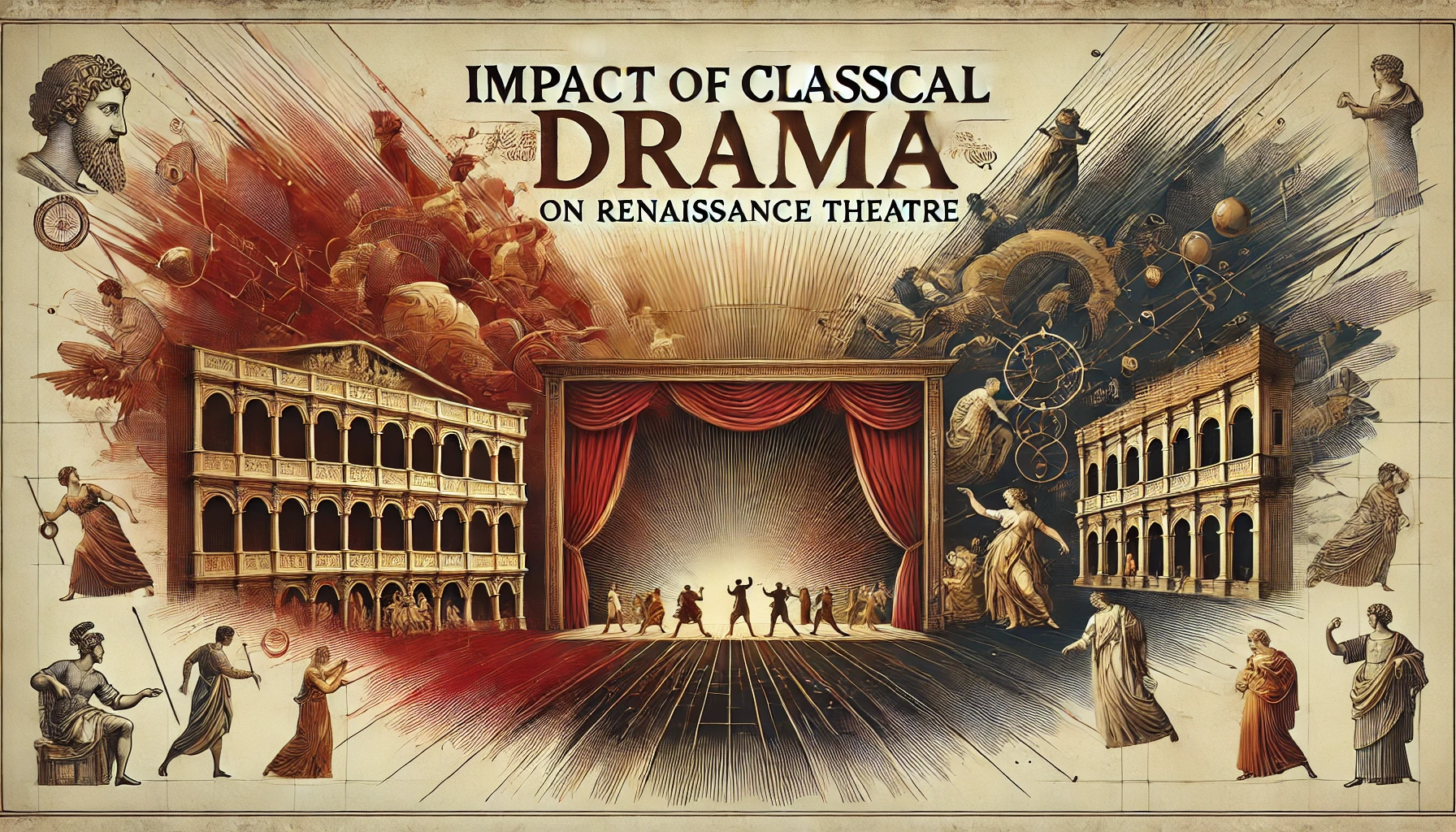

Impact of Classical Drama on Renaissance Theatre
The Renaissance (14th–17th century) was a period of intellectual and artistic revival in Europe, during which the impact of classical drama, particularly Greek and Roman theatre, could significantly be seen on the development of theatre. Playwrights and scholars rediscovered ancient texts, leading to a transformation in dramatic structure, themes, and theatrical conventions. This revival shaped the works of great playwrights such as William Shakespeare, Christopher Marlowe, and Ben Jonson.
During the medieval period, theatre was largely dominated by religious plays (morality and mystery plays). However, with the Renaissance emphasis on humanism and the study of classical texts, playwrights sought to imitate and adapt the ideas of ancient Greek and Roman drama.
Key aspects of classical drama that influenced Renaissance theatre included:
The structure of Renaissance drama was deeply inspired by the Greeks and Romans:
| Classical Drama | Renaissance Drama |
| Greek tragedies followed Aristotle’s rules of unity of time, place, and action. | Renaissance plays sometimes followed unities but often allowed multiple locations and time shifts. |
| Roman tragedies (Seneca) featured long monologues and violent themes. | Renaissance tragedies, like Shakespeare’s Hamlet, used monologues and revenge plots. |
| Roman comedies had stock characters and witty dialogues. | Renaissance comedies, like Twelfth Night, used similar stock characters and humor. |
While Renaissance playwrights modified classical structures, they retained core elements such as tragic flaws (hamartia) and catharsis, seen in Hamlet, Doctor Faustus, and Othello.
The themes of classical Greek and Roman drama were revived and adapted:
These themes helped Renaissance playwrights create complex characters and thought-provoking narratives.
The influence of classical drama extended beyond content to theatrical architecture.
These adaptations allowed for greater audience engagement and more dynamic performances.
The impact of classical drama on Renaissance theatre transformed Western drama forever. It led to:
Even today, classical elements remain foundational in dramatic storytelling, proving the lasting influence of ancient Greek and Roman theatre.
Classical drama played a crucial role in shaping Renaissance theatre, influencing dramatic structure, themes, characters, and stage design. Playwrights like Shakespeare and Marlowe adapted Greek and Roman traditions, creating some of the most enduring works in literary history. This revival laid the groundwork for modern theatre, ensuring that the legacy of classical drama continues to thrive.
#impact of classical drama #impact of classical drama #impact of classical drama #impact of classical drama #impact of classical drama #impact of classical drama #impact of classical drama #impact of classical drama #impact of classical drama #impact of classical drama #impact of classical drama
Read More
Comparison of Greek and Roman Drama (Themes, Structure, Influence)
Plot Construction in Pride and Prejudice
Introduction to Fiction and Non Fiction
Of Death — Francis Bacon (Text)
Of Truth Critical Analysis by Sir Francis Bacon
Of Truth by Francis Bacon Summary
Visit Us on our Facebook Page:
Origin of English Drama: Mystery Plays, Morality Plays, Early Theatre The origin of English drama…
Women in Things Fall Apart Chinua Achebe’s Things Fall Apart presents a deeply patriarchal Igbo…
Power, Identity, and Masculinity in Things Fall Apart Chinua Achebe’s Things Fall Apart explores themes…
Summary of Hamlet by William Shakespeare William Shakespeare’s Hamlet is one of the most renowned…
Legacy and Themes of Doctor Faustus Christopher Marlowe’s Doctor Faustus is one of the most…
The Final Fall of Faustus: Psychological Conflict, Repentance vs. Damnation Christopher Marlowe’s Doctor Faustus reaches…
This website uses cookies.